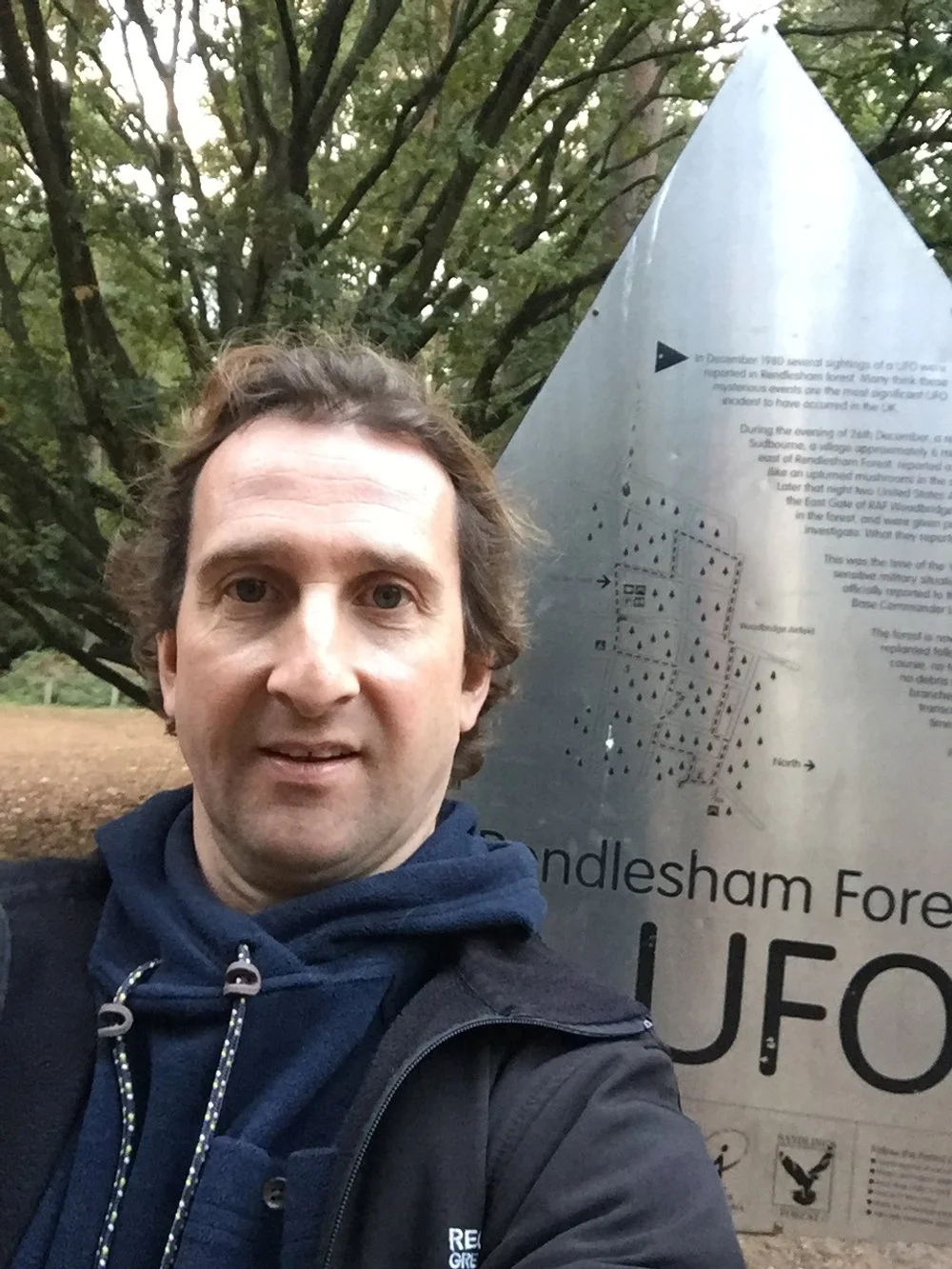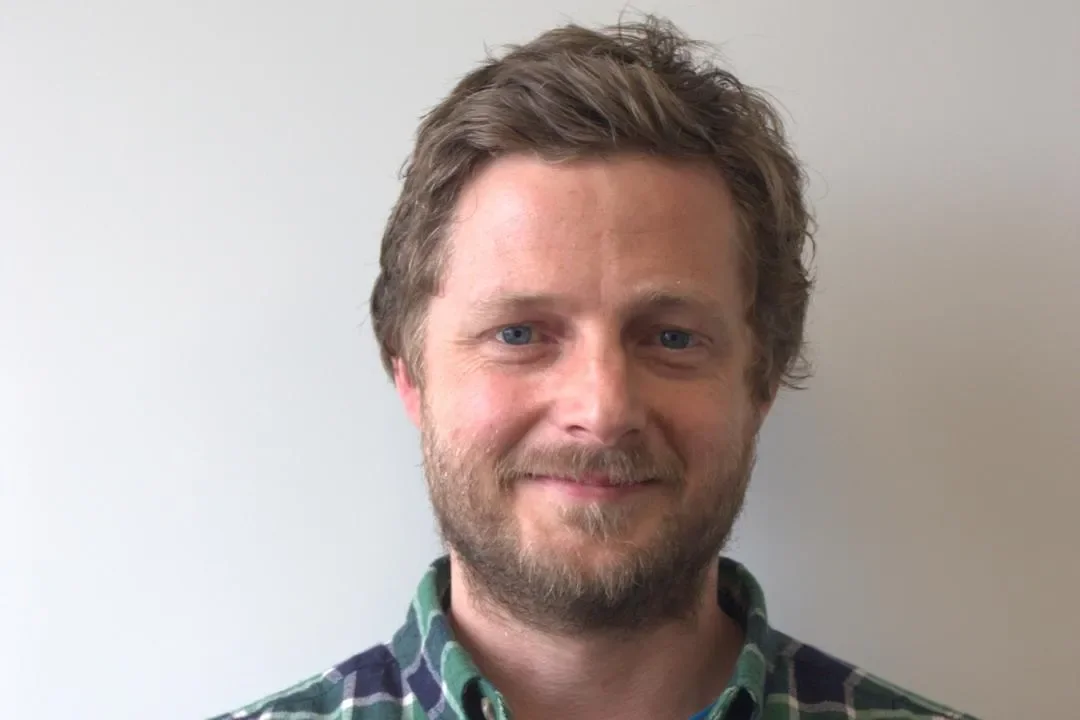Directors
Prof Jules Griffin
Jules is a founding member and the treasurer of the MPF and leads us ever onwards. Jules is organising Metabomeeting 2025 with Dr Mariana Silva Dos Santos.
His research focuses on the application of analytical chemistry to study metabolism at a global level in metabolic diseases. His group has developed and applied metabolomics and lipidomics tools to investigate aspects of the metabolic syndrome and how nutrition interacts with health across the life course. This has included studies based on cell culture, model organisms, human diet intervention studies and epidemiology. At the centre of this research has been a desire to understand why fat metabolism can be so detrimental to the cell.
He received his D.Phil. in Biochemistry from the University of Oxford, where he used 13C NMR spectroscopy to study metabolism in the brain. His first Post-doctoral position applied similar approaches to study cardiac metabolism at Harvard Medical School and Massachusetts General Hospital. Returning to the UK he took up a second post-doctoral position at Imperial College London, joining during the early stages of the development of metabolomics/metabonomics. Here, he applied these new omic tools to understanding how fat metabolism impairs cell function and have been studying this subject ever since.
He was awarded a Royal Society University Research Fellowship and set up his own research group at the Department of Biochemistry, University of Cambridge in 2002. In 2011, he took up a joint position with MRC Human Nutrition Research and the University of Cambridge as a programme leader. This was a transformative appointment, allowing his group to move their focus from model systems into human nutrition and experimental medicine. He also developed a number of high throughput metabolomics and lipidomics tools for cohort studies to examine the metabolic syndrome. In 2019 he took up the Chair of Biological Chemistry at Imperial College London, joining the Imperial College Dementia Research Institute to study the contribution of lipid metabolism to neurodegenerative diseases. In July 2021 he joined the Rowett Institute, University of Aberdeen as Director.
On a personal level he enjoys hiking, running and science fiction (which never creeps into his publications before you suggest this). In the picture he is pretending to be Fox Mulder.
Professor Warwick (Rick) Dunn
Professor Warwick “Rick” Dunn holds a chair in Analytical and Clinical Metabolomics at the University of Liverpool. He obtained a lectureship in 2011 at the University of Manchester, moved to a lectureship at the University of Birmingham in 2013 and moved to the University of Liverpool in 2021. He obtained a BSc(Hons) in Chemistry with Analytical Chemistry from the University of Hull and a PhD from the same university focused on developing interfaces to allow online monitoring of chemical process plants using mass spectrometry in association with BP Chemicals. He leads the Analytical and Clinical Metabolomics Group at the University of Liverpool. His research is focused on two areas (1) the development of new analytical tools and methods to enhance data quality, efficiency of metabolite annotation, coverage of detectable metabolites and sample collection strategies and (2) the application of untargeted and targeted metabolomics to the study of metabolism across the life course in humans including pre-birth, ageing, endocrinology, inflammatory and immune diseases and cancers with a focus on precision medicine. He was one of the founding coordinators of the metabolomics quality assurance and quality control consortium (www.mqacc.org). He is the current President of the Metabolomics Society (2024-2026) and has been a board member of the society from 2010 to 2015 and from 2022 to 2024. His career goals are to make metabolomics a standard resource applied in biological research and to train the next generation of metabolomics researchers. Rick organised the Dried Blood Spots workshop online in 2022 with Alison Whitby and Yuanyuan Li.
Prof Roy Goodacre
Roy Goodacre is Professor of Biological Chemistry at the University of Liverpool and co-director of the Centre for Metabolomics Research.
Trained as a microbiologist and analytical chemist at the University of Bistol, Roy’s research develops metabolomics and spectroscopy to address interesting biological questions. He has helped establish mass spectrometry-based metabolomics for long-term studies and is employing these methods for clinical/health and plant studies, as well as for understanding microbial systems. He has developed a variety of different Raman spectroscopy approaches for bioanalysis with a particular focus on metabolite quantification and image analysis of single cells.
Roy helped establish the Metabolomics Society and is the current and founding Editor-in-Chief of the journal Metabolomics.
For more information: Research Home Page - Google Scholar - Wiki - LinkedIN
Dr Dong-Hyun Kim
Dr Dong-Hyun Kim has served as a Director of MPF since 2016 and organised the Metabomeeting 2018 in Nottingham with Dr Alison Whitby and Dr Salah Abdelrazig. He also currently co-leads the BMSS Single Cell Mass Spectrometry SIG group.
Dr Kim is an Associate Professor of Analytical Bioscience in the School of Pharmacy at the University of Nottingham and Director of the Centre for Analytical Bioscience – a leading mass spectrometry (MS) facility equipped with extensive specialist mass spectrometry instrumentation. The centre houses high-resolution MS (Two Thermo QExactive Orbitraps), high-resolution MS with ion trap (Thermo Fusoin Lumos) and quadruple linear ion trap MS (QTRAP 4000 and 6500). Unique interfaces including AP-MALDI, LESA Plus, nano-LC enable cutting-edge surface and single-cell analysis. This infrastructure provides a high-quality research environment for metabolomics, lipidomics, metabolic pathway profiling, and biomarker identification.
His role includes coordination of internal and external project work as well as fostering interdisciplinary applications of MS-based analytical techniques. His research focuses on advancing and applying MS-based methods to address scientific challenges across the engineering, physical and life sciences. He has a strong track record in fostering collaborative science where novel analytical approaches can make significant impacts on new areas of investigation.
A full list of publications and research grants is available on his ORCID profile - https://orcid.org/0000-0002-3689-2130.
Dr Andrew Southam
Andy became a Director of the MPF in 2016 and organised Metabomeeting 2017 in Birmingham. He works at the Phenome Centre Birmingham, University of Birmingham. He pioneered the development of the direct infusion mass spectrometry spectral-stitching method as part of his PhD at the University of Birmingham (awarded in 2009). During this time he developed an interest in applying untargeted metabolomics to understand liver cancer metabolism and continued this research as a post-doctoral research fellow in Professor Chris Bunce’s research group. Andy joined the Phenome Centre as an Experimental Officer in Metabolomics and Lipidomics in 2017, and became their Director of Mass Spectrometry in 2023.
Prof Lorraine Brennan
Lorraine became a Director of the MPF in 2020. She is our link with the Irish metabolomics scene. She is a full professor in the University College Dublin School of Agriculture and Food Science. She is a PI in UCD Institute of Food & Health and Conway institute. Lorraine leads a nutritional metabolomics group that is at the forefront of the application of metabolomics in nutrition research and the development of Personalized nutrition. She was awarded an ERC consolidator grant in the field for discovery work and currently is involved in two European Consortia- Improve and Promed-cog. Their work has shown the link between metabolomic profiles and food intake and paved the way for the development of metabolomic based biomarkers of food intake. They also develop strategies for delivering personalised nutrition.
More recently, they published an important paper demonstrating the potential of urinary based biomarkers to determine intake of certain foods- using calibration curves developed in a feeding study which enabled the estimation of intake in a cross-section population based study.
Lorraine served as Director of the European Nutrigenomics Organization for 5 years and led a number of important initiatives such as the development of an Early Career Network and expansion of membership of the organization. Recently, she was appointed to the National Academies of Science Engineering and Medicine Standing Committee on Evidence Synthesis and Communications in Diet and Chronic Disease Relationships.
Dr Reza Salek
Reza is Vice President, Head of Application Development at Bruker BioSpin. An accomplished Research and Technology leader with 18 years of experience setting strategies and delivering innovative molecular data-driven translational solutions, building knowledge bioresources and data analytics platforms. He has extensive practical experience in lab-based IVDR, ISO and GLP, and data GDPR privacy regulatory requirements to ensure compliance standards. With a wide-ranging network across industry, SME, and academia, he has secured funding, coordinated/partnered in four international Horizon EC projects and produced over 125 publications. As a strategic leader, he has established and advanced three globally-used knowledge resources, ensuring FAIR governance compliance, and have developed automated curation solutions using NLP, resulting in a 50% reduction in curation time and enhanced interoperability while doubling data accuracy and quality. His team developed robust AI/ML and biostatistical workflow pipelines for analysing bioresources multi-omics and RWE data using automated IaaS workflows, DevOps, and platform-based techniques. Utilising his team's skills in Knowledge Graphs, on top of bioresources analytics, to establish interpretive tools to improve insight into molecular cancer epidemiology IARC EPIC data resulting in reproducible, data-driven models that generate novel insights. As a goal-oriented leader, he prioritises creating supportive and productive cultures that foster teamwork and clear communication while emphasising operational excellence. He is passionate about leading cross-functional teams in a collaborative and impactful manner to drive innovation and deliver results.
Prof Karl Burgess
Karl is also a member of the Scottish Metabolomics Network and bridges the two groups so we are aware of each others’ plans and successes. Karl graduated in Pathobiology at the University of Reading (BSc Hons), followed by an MSc in Molecular Modelling and Bioinformatics at Birkbeck College, University of London. Moving to Scotland he continued with an MRes in Biomedical and Life Sciences, where he was first introduced to the technique of mass spectrometry by Prof. Andy Pitt at the University of Glasgow. After completing his PhD in Proteomics with Andy, Karl undertook a post-doc as part of the Scotland-Wide RASOR consortium for proteomics developments, starting his own lab as Head of Metabolomics at the University of Glasgow in 2009, where, over the next 10 years he developed the Polyomics Metabolomics facility with Mike Barrett, Tanita Casci, Alli Jackson, Richard Burchmore and Pawel Herzyk. During this time he developed standardised methods for metabolomics, quality control, data analysis and interpretation, collaborating worldwide to solve complex biological problems with metabolomics. Karl is now professor at the University of Edinburgh and Scientific Director of the Edinomics Mass Spectrometry core facility. Karl is interested in developing novel high throughput methods for analysing microbiological phenotypes at large scale, and strategies for turning the resulting data into meaningful results.
Dr Alison Whitby
Alison has been a Director of the MPF since 2020. She is a postdoctoral research associate at the University of Nottingham, working there in various metabolomics studies of children’s brain and liver tumours since 2017. Alison led the ECR committee and was on the scientific committee of the European RFMF Metabomeeting 2020 after helping Dong-Hyun Kim to organise Metabomeeting 2018 in Nottingham. She co-organised the 2022 dried blood spots workshop online with Rick Dunn and Yuanyuan Li. Additionally, she organised the 2nd edition of the European School of Metabolomics on the scientific committee and is now engaged in organising the 3rd edition.
Dr Howbeer Muhamad Ali
Howbeer is a microbiologist and metabolomics researcher with expertise in molecular imaging, microbial bioprocesses, and antimicrobial resistance. He completed his PhD in Biotechnology/Metabolomics at the University of Manchester, where he worked on metabolomics across microbial, plant, and mammalian systems. In 2019, as a tenure-track fellow, he established his own research group at the University of Liverpool, focusing on antimicrobial resistance at single-cell and biofilm levels using advanced imaging and metabolomics approaches. In 2023, he successfully completed his tenure-track fellowship and was appointed Lecturer at the University of Liverpool. Howbeer was the lead organiser of Metabomeeting 2024 in Liverpool, and in 2025, was elected to the Board of Directors.










